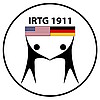B7 (2016 - 2019) – Neutrophil – efferocyte interaction in immunity to M. tuberculosis infection
Necrotic granulomas are hallmarks of tuberculosis (TB) and a prerequisite for aerosol transmission of Mycobacterium tuberculosis (Mtb). TB is the prime bacterial infection worldwide. Immunomodulating host directed therapies (HDT) adjunct to antibiotic treatment are promising measures to limit pathology and transmission. Neutrophils (PMN) are the predominant Mtb infected cell population in active TB patients, and signatures thereof are associated with TB exacerbation, and thus, represent HDT targets (Dallenga et al. PathDis 2016). Mtb escapes PMN effectors by inducing reactive oxygen intermediates and necrotic cell death (Corleis et al., CellMicro 2012). Thus, PMN have limited protective function in TB, but rather contribute to exacerbation of disease, granuloma necrosis and antagonizing protective immunity. Efferocytosis is the process of apoptotic or necrotic cell body removal and therefore essential to limit tissue harm. Here we analyze the downstream effects of the interactions between Mtb-infected PMN and efferocytic macrophages and dendritic cells with respect to activation or suppression of T cell responses with a focus on CD1 restricted lipid specific T cells.
Aims:
1. Assess antigen presentation capacity of efferocytes engulfing Mtb-infected PMN
2. Characterize Mtb-infected PMN membrane lipids as agonists or antagonists in CD1-restricted T cell activation
3. Analyze innate lymphocytes in Mtb-infected C3HeB/FeJ mice






